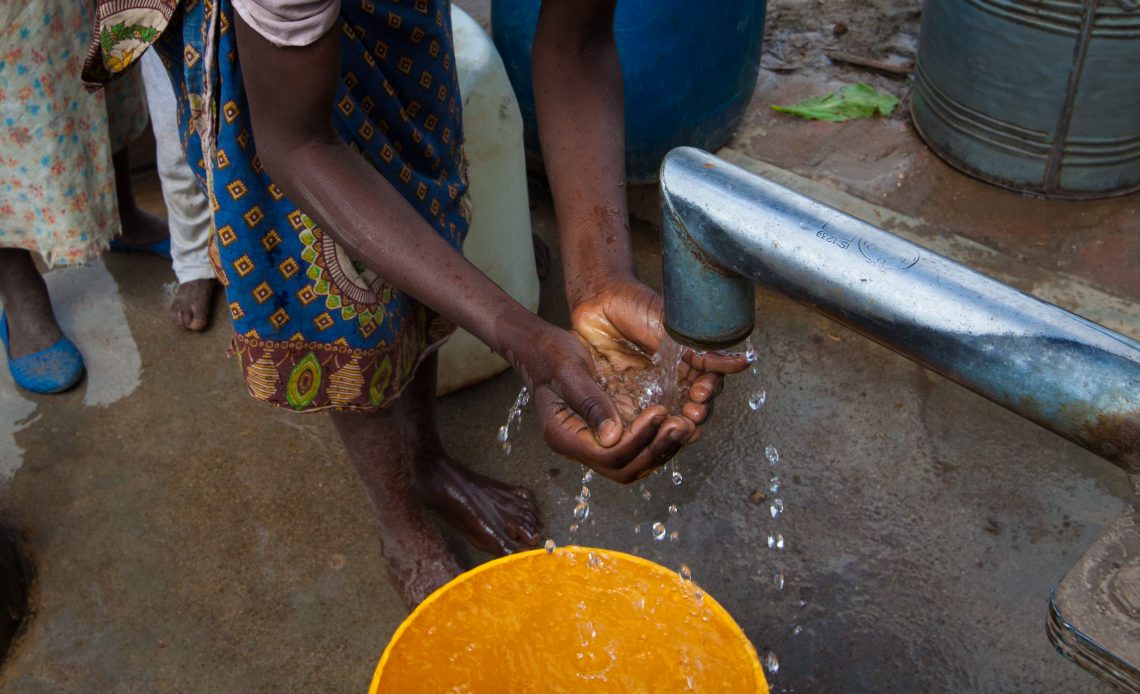The coronavirus pandemic caught African leaders unprepared. As the situation escalated rapidly, with the global death toll reaching tens of thousands in a matter of weeks, they were unable to come up with and implement homegrown solutions to stem the spread of the disease in their countries.
As a result, they went on to copy the strategies of other countries, imposing strict lockdowns and closing their borders. The rushed and broadly contentious imposition of rigid lockdowns in Africa, however, unleashed widespread social instability, hunger and profound economic uncertainty, leaving vendors, small-scale farmers and undocumented migrants struggling to survive.
On April 16, for example, informal vendors rallied against a proposed 21-day coronavirus lockdown in Malawi . A day after the march, in response to a petition filed by the Malawi Human Rights Defenders Coalition (HRDC), Malawi’s High Court temporarily barred the government from implementing a 21-day lockdown . The crux of the HRDC’s opposition to a lockdown in Malawi is the lack of adequate social safety measures to support underprivileged people.
Zimbabwe, meanwhile, is also struggling to maintain a lockdown which has caused immense hardships for vendors and small traders who are restricted from working. This could not have happened at a worse time: Zimbabwe is overwhelmed by economic and humanitarian challenges. According to the World Food Programme, 7.7 million people , roughly half of the country’s population, are food insecure. Clearly, a hastily convened British-style lockdown is exacerbating a crippling food crisis and compounding a litany of long-established economic problems.
The International Monetary Fund estimates that at 60.6 percent, Zimbabwe has the largest informal economy in Africa . And in a nation where 90 percent of the population is reliant on informal employment, any extended, unsubsidised absence from work is certainly a recipe for disaster. The National Vendors Union Zimbabwe has revealed that informal vendors are “going through a tough period” and facing “extreme hunger”, especially without government support to lean on.
To the east of Zimbabwe, Mozambique is hardly faring any better. There, the peasantry constitutes 80 percent of the economically active population, producing 90 percent of the food available in the country. A 30-day state of emergency , beginning on April 1, declared by President Filipe Nyusi, has, according to the Institute for Poverty, Land and Agrarian Studies, bred devastating consequences for small-scale farmers in three ways. Peasant farmers are selling their products way below the market price as the supply chain has broken down. They are struggling to buy basic commodities due to reduced income from crop sales. And the lockdown regulations have affected the supply of agrarian labour in rural areas.
Elsewhere, in South Africa, the questionable classification of essential workers and services has left many vendors, small business owners and traders reeling from the loss of business enforced by a national shutdown . Yet it is township-based businesses and self-styled traders that stand to suffer the most. Although registered spaza shops (informal convenience shops usually run from private residences) have been allowed to operate during an extended lockdown , not every informal trader or spaza is catered for .
Small Business Development Minister Khumbudzo Ntshavheni, under the pretext of safeguarding “the quality of food and surety of the quality of products, cast doubt on whether foreign-owned spaza shops would be allowed to operate during the lockdown. Yet any exclusionary measures might spell financial doom for migrant-owned spaza shops which have long been targets of xenophobic looting . Ntshavheni, nevertheless, also did not clarify whether thousands of migrant-owned spaza shops can seek economic aid from the 500 million South African rands ($26.5m ) relief fund established for small businesses.
The all-round, critical desperation for help is palpable and the government is inundated with requests for food parcels . Although the Unemployment Insurance Fund is processing applications to subside incomes for unpaid employees, experts estimate 45 percent of all workers are not eligible for financial aid . Undocumented migrants, however, cannot apply to receive financial aid or food parcels , and the government has not provided clarity on how undocumented migrants can access essential healthcare services or possibly much-needed money.
South Africa’s unprecedented $26.5bn coronavirus support package includes a special six-month-long COVID-19 grant of 350 rands ($18 ) for the unemployed. Despite this vital intervention, the National School Nutrition Programme remains shut, potentially leaving nine million children vulnerable to hunger .
Critics of the government’s handling of the lockdown contend more must be done to help poor people. The South African Federation of Trade Unions and the Association of Mineworkers and Construction Union believe the $18 benefit falls way short of meeting the monthly needs of unemployed and historically disadvantaged individuals residing in townships and marginalised informal settlements .
The comprehensive problems associated with lockdowns in Southern Africa have resulted in empty foodmarkets in Ghana and Uganda. In Nigeria, a combination of corruption at roadblocks, regulations and an extended lockdown in Lagos , have increased transport and operational costs for vendors and farmers, leaving many with depressed financial returns.
African governments must find local, workable solutions to enforce social distancing that would allow crucial economic activities to flourish.
That large, wealthy agricultural and food manufacturing companies have been allowed to operate while poor and essential service providers in townships and rural areas grapple with red tape and adverse regulations is a sad indictment on agreed national commitments to facilitating inclusive economic participation.
Post-COVID-19, many African states might struggle to meet the growing expectations of citizens whose livelihoods have been severely disrupted or irretrievably destroyed by the unintended consequences of enacting unworkable lockdowns.
Going forward, governments must consider establishing a universal basic income grant and formally recognising the importance of informal economies to Africa’s social and economic wellbeing and development.
Opinion by Tafi Mhaka


